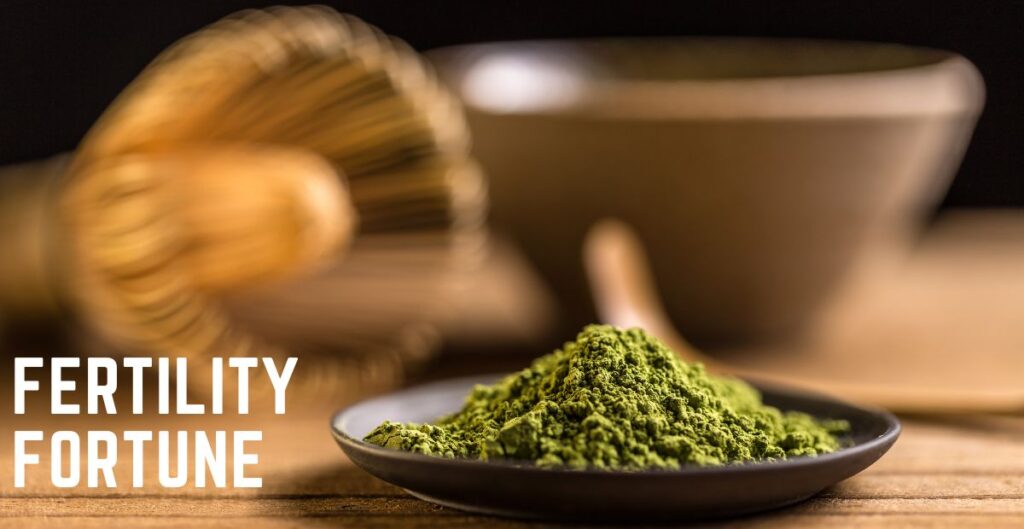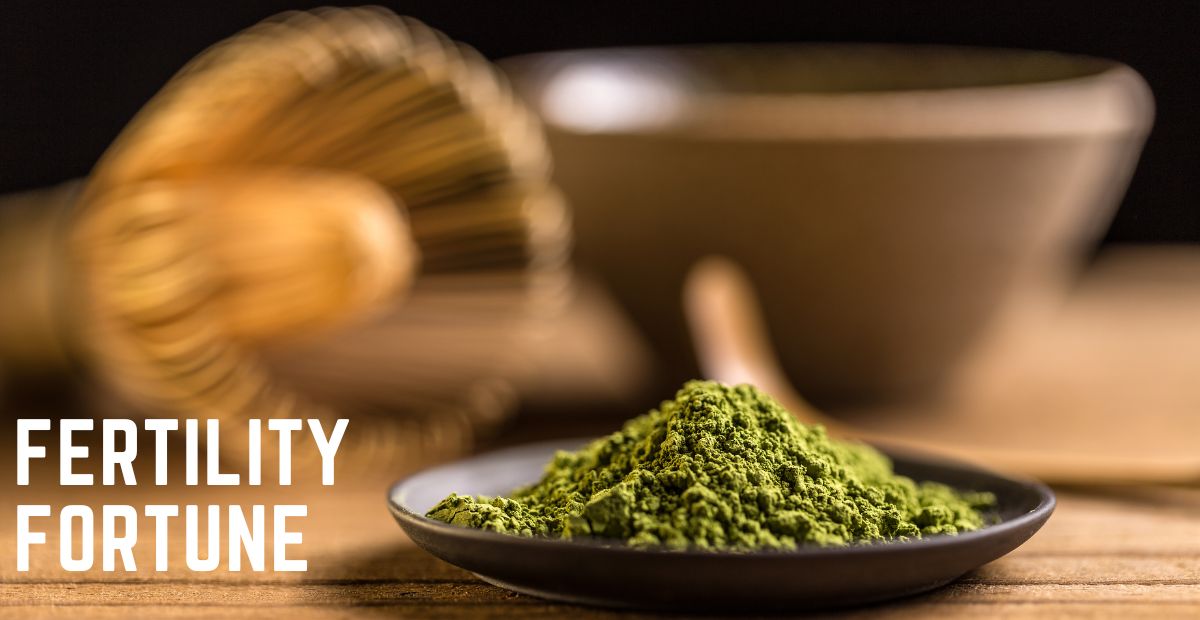
Excited to learn about Matcha and PCOS? Are you a woman who has been struggling with symptoms of PCOS? If so, you know firsthand how difficult it can be to find ways to effectively manage the condition. With various treatment options available, it can be hard to decide which will give you the best outcome. In this blog post, we’ll talk about how Matcha may help improve PCOS symptoms and quality of life for women dealing with this condition. Specifically, we’ll discuss interesting scientific evidence in support of its effectiveness against inflammation associated with PCOS and why drinking Matcha may have powerful health benefits when compared to other forms of green tea like sencha or oolong tea. So sit back and prepare yourself for an informative journey on the potential power that routinely sipping Matcha might provide!
What is Matcha, and how is it made?
Matcha is an incredibly popular culinary ingredient derived from green tea leaves that have grown increasingly popular in recent years. The name ‘matcha’ derives from the Japanese word for ‘ground tea,’ and true to its name, Matcha is made simply by grinding fully-grown Camellia sinensis tea leaves into a fine powder. Matcha is a finely ground powder of specially grown and processed green tea leaves. Traditionally used in Japanese tea ceremonies, it has become quite popular recently due to its multitude of health benefits and distinct flavor. When Matcha is prepared, instead of steeping the tea leaves in water, the dry powder is dissolved directly into hot water and blended with a bamboo whisk. This produces a uniquely smooth and frothy consistency that makes for an enjoyable cup of tea. Its bright green color is indicative of its high nutrient content, which includes polyphenols, minerals, and vitamins, among other nutritional elements. The combination of these components helps boost energy levels while providing antioxidants to help protect your body from dangerous free radicals. Matcha offers more than just physical health benefits. However, its calming effects produce an overall sense of balance both mentally and physically when drunk regularly.
What are the health benefits of Matcha?
Matcha is a special type of green tea that is grown and processed in a traditional Japanese style. The leaves are shade-grown for about three weeks before harvest, giving the tea its distinctive bright green color. Matcha is made from the whole leaf, which is then ground into a fine powder. This powder can be used to make traditional tea or added to other foods and beverages for a healthy boost. There are many health benefits associated with Matcha, making it a great choice for those looking to improve their overall health.
- Matcha contains high levels of antioxidants, which can help protect the body from damage caused by free radicals.
- It also has anti-inflammatory properties, which can help reduce swelling and inflammation throughout the body.
- Matcha is also a good source of catechins, which are believed to play a role in cancer prevention.
- In addition to its health benefits, Matcha also has a unique flavor that many people enjoy.
- Matcha contains l-theanine, which will increase the level of a neurotransmitter called GABA. GABA contains anti-anxiety properties.
How can Matcha help with PCOS symptoms?
Matcha is a special type of green tea powder full of antioxidants, fiber, and chlorophyll. It offers many health benefits that can be especially useful for those suffering from Polycystic Ovary Syndrome (PCOS). The antioxidants in Matcha help fight inflammation and balance hormones, while the fiber aids in digestion and toxin removal. Chlorophyll has been found to improve metabolic function, helping to regulate the immune system and reduce cholesterol levels. Consuming this superfood regularly, it may decrease the severity of PCOS symptoms such as acne breakouts, weight fluctuations, fogginess, body aches, and fatigue. Research suggests that adding matcha powder to your diet can also help normalize hormone levels when combined with regular exercise and balanced nutrition. As always, when making changes to one’s diet or lifestyle, consulting with a healthcare professional first is recommended.
The best ways to enjoy Matcha for optimal health?
When brewed as a tea, Matcha has a slightly sweet taste with grassy undertones.
It can also be added to smoothies, baked goods, and other foods for an extra burst of flavor. If you’re looking for a healthy way to enjoy Matcha, there are many delicious ways to do so!
SMOOTHIE
Making a matcha smoothie is quick and easy! All you need to do is mix up some matcha green tea powder with some liquid of your choice: for example, non-dairy milk or water. Next, throw in any extra ingredients you’d like, such as a banana or some dates for sweetness. Then blend it all together — voila! You now have a deliciously refreshing and energizing smoothie that’s perfect no matter the time of day. Don’t forget to top off your smoothie with nut butter and any toppings like coconut flakes or granola. Enjoy!
Making a matcha smoothie couldn’t be simpler! Start by adding 1/2 cup of milk (dairy or non-dairy works) to your blender container, then add 2 teaspoons of matcha powder. Blend on low speed to avoid clumping and to ensure proper mixing, then increase the speed until the mixture is smooth. For added sweetness and flavor, you can add honey or agave nectar; for a creamy consistency, add 1/2 banana or yogurt to the mix. If desired, top off your smoothie with the sliced fruit of your choice before enjoying it! Making a matcha smoothie is easy, quick, and fun – why not give it a try?
LATTE
Making an amazing matcha latte doesn’t have to be hard or time-consuming! All you need is quality matcha powder, warm milk, sweetener, and a few tools like a small sieve, a whisk, and something to froth your milk. Start by running your matcha powder through a small sieve to get rid of any lumps. Then, whisk the Matcha in with boiling water until it’s light and frothy. Once you’ve got your lovely green paste, add your hot milk along with any sweetener of your choice. Finally, use a hand frother to recreate that classic latte look, and enjoy the delightful foaminess atop your velvety cup of richly flavored goodness!
Making a matcha latte doesn’t have to be complicated; in fact, it’s quite simple! Begin by combining one teaspoon of matcha green tea powder and two teaspoons of hot water in a bowl or mug. Use a bamboo whisk to mix the powder and water together until the mixture is free of any clumps. Next, heat up 8 ounces of either your favorite milk or non-dairy alternative, whichever you prefer. Once heated, fill your mug or bowl halfway with the steamed milk, leaving enough room for foam; pour your matcha mixture into the mug. Finally, use a handheld frother to create some nice foam on top – and voila! You now have created a delicious matcha latte that you can enjoy at home.
Recipes that include Matcha as an ingredient
Matcha, a type of finely ground green tea powder, is a widely used ingredient in recipes all over the world. In Japan and other East Asian cultures, Matcha has been incorporated into traditional desserts like mochi, ice cream, and sweet buns. More recently, it has made its presence known in modern dishes as well – from creamy matcha-infused shakes to savory Matcha marinated chicken. Add a unique flavor to your kitchen creations by exploring the many available recipes that include Matcha as an ingredient. From delectable treats to flavorful meals, you are sure to be surprised at just how delicious Matcha can taste!
What are the benefits of drinking Matcha for people with PCOS?
Matcha is becoming a popular health drink for people with PCOS. Studies have shown that the antioxidant and anti-inflammatory properties of Matcha can help manage PCOS symptoms such as increased insulin levels, reduced fertility, and weight gain.
By drinking Matcha, one can also benefit from its high content of chlorophyll, which helps to detoxify the body, as well as its catechins, that work to reduce inflammation in the body.
Moreover, the combination of green tea and L-theanine can improve cognitive functioning by reducing anxiety and stress levels. These combined effects make it an ideal beverage for those suffering from PCOS while still providing a refreshingly stimulating taste.
Tips for buying and preparing Matcha
Matcha is a unique type of green tea that has numerous health benefits. When considering where to buy Matcha, it’s best to start by researching each source and learning about the supplier before investing. If possible, choose a vendor who specializes in producing or selling the tea. For example, many tea shops and online stores offer Matcha of various grades and quality. Additionally, it’s beneficial to read reviews from previous customers before making any purchases. Lastly, pay attention to the packaging, as freshness is critical when it comes to Matcha and other loose-leaf teas. By following these simple tips, you can find the perfect Matcha for your needs in no time.
YOU MAY ALSO LIKE:
Does laser hair removal help if you have pcos?
Prenatal Vitamins for PCOS: The Ultimate Guide
Is PCOS an Autoimmune Disease? What You Need to Know
The Ultimate Solution for PCOS Hirsutism: Electrolysis Before and After

